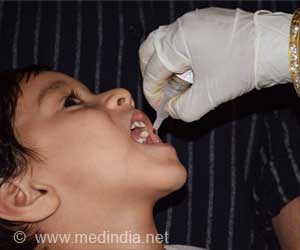Rice University, which is renowned for its exemplary teaching and research experience has won three highly covetous grants from Howard Hughes Medical Institute (HHMI) to develop model programs for the country which can provide engineering and science undergraduate teaching with cutting-edge research.
Professors Bonnie Bartel, the Ralph and Dorothy Looney Professor of Biochemistry and Cell Biology and Jennifer West, the director of Rice's Institute of Biosciences and Bioengineering, the Isabel C. Cameron Professor of Bioengineering and professor of chemical and biomolecular engineering of the Rice University, have been selected to the noble ranks of its HHMI Professor program. HHMI also announced funding today for existing HHMI Professor Rebecca Richards-Kortum, Stanley C. Moore Professor in bioengineering, electrical and computer engineering.This highly competitive program is a four-year, $1 million grants for researchers to develop new programs, which combine undergraduate teaching with research. The leadership of Rice University in this program is evident from the fact that it has been awarded three times of the entire 40-award span of the program.
The aim of the HHMI Professor program is to invigorate teaching in science and engineering with the help of laboratory research.
Professor Bartel's has undertaken "From Reading to Research: Introducing Undergraduates to Research from the Outside In," as the topic of research for the HHMI Professor program. This would be an attempt to involve freshman and sophomores with the aid of small, interactive classes with practical lab training.
Bartel plans to develop these classes such that a graduate student or a postdoctoral researcher who will discuss a newly published research article of a local laboratory, in detail, will lead them. Laboratory tours, reviews of experimental data and equipment, interviews with researchers are some of the planned activities.
Plans for the sophomores include a laboratory module where pairs of students will be guided in the identification of products of an unknown plant enzyme. Using biotechnological methods, the students would be taught to create genetically modified yeast, which in turn will produce sufficient enzyme for systematic study. This will be followed by structural studies of the products of these target enzymes with the help of gas- chromatography or other equally cutting-edge techniques. Followed by their lab work, the students will be granted an opportunity to work among graduate students and postdoctoral researchers in faculty labs to further their study of the enzymes as well as prepare peer-reviewed publications of their research. This experience could grant the sophomores an opportunity for more extensive projects of faculty research labs.
Advertisement
1. A high school summer academy, which would add a research component to the existing Rice program, which is in collaboration with Science Academy of South Texas. Thus students would get an opportunity to experience lab life with a graduate student guide.
Advertisement
3. A biology course for upper-level students in engineering and the physical sciences.
4. A summer internship program available to both Rice and non-Rice engineering and physics students who would like to participate in bionanotechnology research.
According to West these courses would especially benefit undergraduate engineering and science majors at Rice University, interested in biomedical research but with little life science training.
Professor Richards-Kortum's program, "Health-Care Technology Development and Assessment: Integrating Research and Undergraduate Education in Biomedical Engineering," was one of the 20 inaugural programs which were funded under the HHMI Professor program. With the funding a new introductory course in bioengineering which focuses the development of new healthcare technologies which can overcome world health challenges including cancer, Implantable devices for the treatment of heart disease, development of new vaccines etc.
With such a wide caliber of research potential it is quite evident how there are more HHMI professors at Rice than at other universities.





